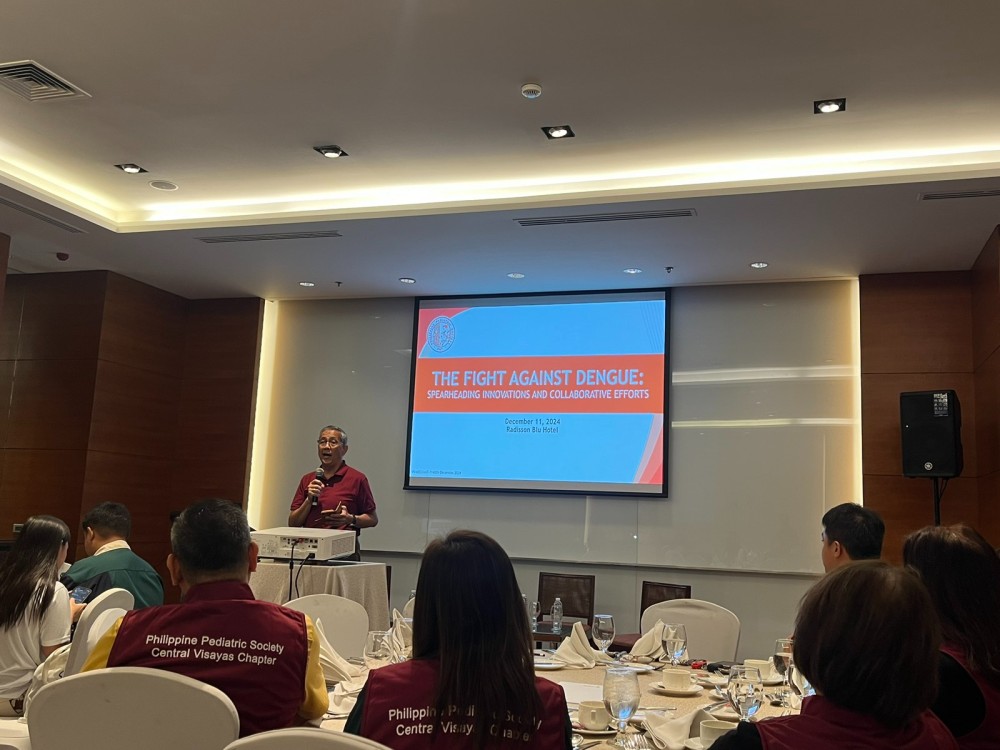News
Battling the Dengue Surge: PPS Central Visayas Leads Charge


The Philippine Pediatric Society Central Visayas Chapter (PPS) hosted a Media Round Table Discussion at Radisson Blu Hotel Cebu on December 11, 2024, to address the increasing threat of dengue in the region and the entire country.
With the theme “The Fight Against Dengue: Spearheading Innovations and Collaborative Efforts,” Dr. Ronald Limchiu and Dr. Ellaine Nielo highlighted the dengue situation at the national and local levels.
As of November 2024, the Philippines reported 340,860 dengue cases and 881 deaths, the highest number in the ASEAN region. Central Visayas led the country in dengue cases from January to November 2024, with 33,651 reported cases, exceeding the 26,663 cases recorded in the National Capital Region (NCR).
From January to June 2024, Cebu City reported the highest dengue cases among Cebu’s major cities, with 1,360 cases and 3 deaths. Lapu-Lapu City followed with 504 cases, while Mandaue City recorded 437 cases and one death.
They also emphasized that the highest fatality rates are observed among children under 9 years old and adults over 60 years old.
In response to the growing dengue threat, members of the PPS-Central Visayas Chapter launched the Dengue Integrated Program (DIP), identifying themselves as “Dengue Warriors.”
The DIP prioritizes education, prevention, and early detection as key strategies in combating dengue fever. A core aspect of this initiative involves engaging physicians and local health units to promote awareness about the proper management and prevention of dengue.
This effort is complemented by partnerships with Local Government Units (LGUs), which enforce ordinances aimed at enhancing dengue prevention and control. These measures include misting operations, community clean-up drives, public awareness campaigns, and the establishment of Dengue Brigades.
In addition, the World Health Organization advocates a comprehensive approach to dengue control, integrating vaccination, vector management, clinical care, and surveillance. Furthermore, the introduction of the Second Generation Vaccine, now licensed in over 30 countries across Europe, America, and Asia, has enabled the implementation of dengue vaccination programs. (AGA)














